Privacy Policy
Privacy Policy
This is to let you know how Waterlife Recovery East (a registered name of the Waterlife Recovery Trust) promises to look after your personal information, which is almost exclusively your contact information. We will always be very careful with your personal information; we will not sell it or use it for purposes other than in connection with the control of American mink. Holding and using this information is necessary for those of us working to deliver the Trusts’ aims to enable us to communicate with you about the equipment we have loaned, and to keep you informed. Without holding this information, we would be unable to loan you the mink control equipment and work with you over its use.
The handling of your personal data (eg contact details) is regulated under the General Data Protection Regulations with which we will conform. Our Data Protection Policy is set out below.
Data Protection Policy
Waterlife Recovery Trust
| Last updated | 6 January 2022 |
|---|
Definitions
| Charity | Means Waterlife Recovery Trust, a registered charity. |
|---|---|
| GDPR | Means the General Data Protection Regulation. |
| Responsible Person | Means The Board is ultimately responsible. |
| Register of Systems | Means a register of all systems or contexts in which personal data is processed by the Charity |
1. Data protection principles
The Charity is committed to processing data in accordance with its responsibilities under the GDPR.
Article 5 of the GDPR requires that personal data shall be:
- processed lawfully, fairly and in a transparent manner in relation to individuals;
- collected for specified, explicit and legitimate purposes and not further processed in a manner that is incompatible with those purposes; further processing for archiving purposes in the public interest, scientific or historical research purposes or statistical purposes shall not be considered to be incompatible with the initial purposes;
- adequate, relevant and limited to what is necessary in relation to the purposes for which they are processed;
- accurate and, where necessary, kept up to date; every reasonable step must be taken to ensure that personal data that are inaccurate, having regard to the purposes for which they are processed, are erased or rectified without delay;
- kept in a form which permits identification of data subjects for no longer than is necessary for the purposes for which the personal data are processed; personal data may be stored for longer periods insofar as the personal data will be processed solely for archiving purposes in the public interest, scientific or historical research purposes or statistical purposes subject to implementation of the appropriate technical and organisational measures required by the GDPR in order to safeguard the rights and freedoms of individuals; and
- processed in a manner that ensures appropriate security of the personal data, including protection against unauthorised or unlawful processing and against accidental loss, destruction or damage, using appropriate technical or organisational measures
2. General provisions
- This policy applies to all personal data processed by the Charity.
- The Responsible Person shall take responsibility for the Charity’s ongoing compliance with this policy.
- This policy shall be reviewed at least annually.
- The Charity is exempt from registration with the Information Commissioner’s Office as an organisation that processes personal data.
3. Lawful, fair and transparent processing
- To ensure its processing of data is lawful, fair and transparent, the Charity shall maintain a Register of Systems.
- The Register of Systems shall be reviewed at least annually.
- Individuals have the right to access their personal data and any such requests made to the charity shall be dealt with in a timely manner.
4. Lawful purposes
- All data processed by the charity must be done on one of the following lawful bases: consent, contract, legal obligation, vital interests, public task or legitimate interests (see ICO guidance for more information).
- The Charity shall note the appropriate lawful basis in the Register of Systems.
- Where communications are sent to individuals based on their consent, the option for the individual to revoke their consent should be clearly available and systems should be in place to ensure such revocation is reflected accurately in the Charity’s systems.
5. Data minimisation
- The Charity shall ensure that personal data are adequate, relevant and limited to what is necessary in relation to the purposes for which they are processed.
- The charity needs to be in continual contact with those that are part of the project to provide them with support, ensure the welfare of trapped animals and to efficiently deliver the outcomes of the project. Equipment is lent to those taking part in the project and can be recovered at any time.
6. Accuracy
- The Charity shall take reasonable steps to ensure personal data is accurate.
- Where necessary for the lawful basis on which data is processed, steps shall be put in place to ensure that personal data is kept up to date.
- Updates to personal information for those volunteers who help deliver the project are made directly onto the Mink Cloud Database and Remoti database by the Project Officers of the participating organisations.
7. Archiving/removal
- To ensure that personal data is kept for no longer than necessary, the Charity shall put in place a data retention policy for each area in which personal data is processed and review this process annually.
- The data retention policy shall consider what data should/must be retained, for how long, and why.
8. Security
- The Charity shall ensure that personal data is stored securely using modern software that is kept-up-to-date.
- Access to personal data shall be limited to personnel who need access and appropriate security should be in place to avoid unauthorised sharing of information.
- When personal data is deleted this should be done safely such that the data is irrecoverable.
- Appropriate back-up and disaster recovery solutions shall be in place.
9. Breach
In the event of a breach of security leading to the accidental or unlawful destruction, loss, alteration, unauthorised disclosure of, or access to, personal data, the Charity shall promptly assess the risk to people’s rights and freedoms and if appropriate report this breach to the ICO (more information on the ICO website).
END OF POLICY
Annex 1
Register of Systems
- Mink Cloud Database. Personal data held – Name, email, phone number, address. The lawful basis for holding this is ‘Contractual’, confirmed using the interactive tool on the ICO website.
- Remoti Database. Is owned by and the responsibility of BMorley Ltd. Charity officers enter email and mobile telephone numbers of volunteers, given on a ‘Contractual’ basis, that are necessary for the monitoring of Remoti trap monitoring devices.
- Newsletter Distribution List. Personal data held – name, email. The lawful basis for holding this is ‘Legitimate Interest’.
- CAF Bank via its dashboard. This records those donating to the project. The database is owned by CAF and The Charity has a ‘legitimate interest’ in donors.
Annex 2
Data Retention Policy
The data covered in this policy is defined in Annex 1 The purpose of keeping personal information is to support the key objective of the Charity to control / eradicate the introduced American mink from Great Britain. Delivering the Charities’ objective is long term, as are the interactions with Volunteers.
The Charity will keep data relating to ‘Volunteers’ who have smart traps or help manage them, which is on a contractual basis, in secure Cloud databases for no longer than is necessary.
The Newsletter distribution list only holds email addresses and is held securely. The addresses are from volunteers involved in delivering the work of the Charity who have a legitimate interest in the information and others wishing to be informed of the progress of the project (Consent). Every Newsletter offers the opportunity for recipients to be removed from the distribution list. Anyone who indicates this will have their address removed from the email list.



